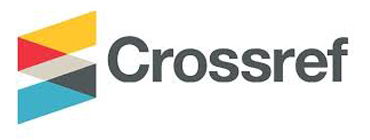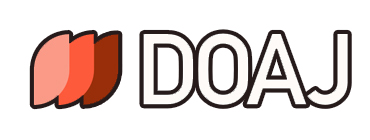PRAGMATICS TEST ASSESSMENT INNOVATION BASED HOTS IN ARABIC TEXTBOOKS CLASS XII
Abstract
The Arabic textbook test for class XII published by the Ministry of Religious Affairs uses a pragmatic approach, but there are still questions that are at the MOTS level and less diverse in the variety of assessment forms, so it is not optimal in developing students' critical thinking skills. This study aims to analyse and develop innovative pragmatic approach tests in class XII Arabic textbooks published by the Ministry of Religious Affairs that are HOTS. This research is a library research. The results of this study show that some pragmatic tests in class XII Arabic textbooks have adopted the HOTS approach, especially in test types such as dictation, writing, storytelling, and interviews. However, it was also found that some tests were still at the MOTS level. This research provides innovations in HOTS-based pragmatics test instruments that are more varied, including dictation, translation, paraphrasing, cloze, and question and answer tests with detailed explanations of their cognitive implementation to improve Arabic language assessment.
Full Text:
PDFReferences
Abdulridah Dhyaaldian, S. Mohammed, Hasan Alzubaidi, S., A. Mutlak, D., Raheem Neamah, N., Ali Alberr, A. A. M., A. Hamad, D., Fadhil Al Hasani, S., Musa Jaber, M., & Ghaleb Maabreh, H. (2022). Psychometric Evaluation of Cloze Tests with the Rasch Model. International Journal of Language Testing, 12(2). https://doi.org/10.22034/ijlt.2022.157127
Alduais, A., Qasem, F., Alfadda, H., Alfadda, N., & Alamri, L. (2022). Arabic Validation of the Pragmatic Language Skills Inventory to Assess Pragmatic Language Development in Preschoolers with and without Pragmatic Language Impairment. Children, 9(6), 809. https://doi.org/10.3390/children9060809
Amila Sholiha, R Umi Baroroh, & Razita Binti Abdullah. (2023). Innovation in Reading Skills Assessment in Arabic Textbooks Based on HOTS Assessment. Izdihar : Journal of Arabic Language Teaching, Linguistics, and Literature, 6(2). https://doi.org/10.22219/jiz.v6i2.27151
Amin, N. F., Nasruni, N., Zainuddin, N., & Mutmainnah, A. (2023). Higher, Medium and Lower Order Thinking Skills in the Book al-‘Arabiyah Baina Yadaik. Arabiyatuna: Jurnal Bahasa Arab, 7(2 November), 795. https://doi.org/10.29240/jba.v7i2.8414
Anggreni, N. M. A. D. (2023). Improving Balinese Learning Outcomes Through the Implementation of Pragmatic Approaches. Indonesian Journal of Educational Development (IJED), 4(3), 366–372. https://doi.org/10.59672/ijed.v4i3.3110
Arcara, G., & Bambini, V. (2016). A Test for the Assessment of Pragmatic Abilities and Cognitive Substrates (APACS): Normative Data and Psychometric Properties. Frontiers in Psychology, 7. https://doi.org/10.3389/fpsyg.2016.00070
Chiang, H.-H. (2019). A Comparison Between Teacher-Led and Online Text-to-Speech Dictation for Students’ Vocabulary Performance. English Language Teaching, 12(3), 77. https://doi.org/10.5539/elt.v12n3p77
Chung, E. S., & Ahn, S. (2019). Examining Cloze Tests as a Measure of Linguistic Complexity in L2 Writing. Lanaguage Research, 55(3), 627–649. https://doi.org/10.30961/lr.2019.55.3.627
Cohen, L., Manion, L., & Morrison, K. (2017). Research Methods in Education. Routledge.
Damaianti, V. S., Abidin, Y., & Rahma, R. (2020). Higher order thinking skills-based reading literacy assessment instrument: An Indonesian context. Indonesian Journal of Applied Linguistics, 10(2), 513–525. https://doi.org/10.17509/ijal.v10i2.28600
Eliyasni, R., Kenedi, A. K., & Sayer, I. M. (2019). Blended Learning and Project Based Learning: The Method to Improve Students’ Higher Order Thinking Skill (HOTS). Jurnal Iqra’ : Kajian Ilmu Pendidikan, 4(2), 231–248. https://doi.org/10.25217/ji.v4i2.549
El-Sabagh, H. A. (2021). Adaptive e-learning environment based on learning styles and its impact on development students’ engagement. International Journal of Educational Technology in Higher Education, 18(1), 53. https://doi.org/10.1186/s41239-021-00289-4
Faizmailiatus Sofa, R Umi Baroroh, Nurinadia, P., Wahidah, N., & Nurul Afifah, S. (2023). Innovation of Language Receptive Skills Based on Authentic Assessment. Izdihar : Journal of Arabic Language Teaching, Linguistics, and Literature, 6(1). https://doi.org/10.22219/jiz.v6i1.24029
Fitria, N., & Baroroh, R. U. (2023). Innovation of Assessment Techniques on Mahārah Kitābah in Arabic Textbooks Based on Higher-Order Thinking Skills (HOTS). Ta’lim al-’Arabiyyah: Jurnal Pendidikan Bahasa Arab & Kebahasaaraban, 7(1), 14–28. https://doi.org/10.15575/jpba.v7i1.22829
Haerazi. (2011). Pendekatan Pembelajaran Bahasa (Approach Of Language Learning). Samudra Biru.
Harliani, S. (2019). The World of Translation. OKARA: Jurnal Bahasa Dan Sastra, 13(1), 121. https://doi.org/10.19105/ojbs.v13i1.2272
Hermawan, A. (2021). Penilaian Pemebelajaran Bahasa Arab Prinsip dan Operasional. PT. Remaja Rosdakarya.
Iswanto, R., & Qomari, N. (2023). Thathwir Kitab al-Lughah al-‘Arabiyyah ‘Ala Asas al-Aghradh al-Iqtishadiyyah bi al-Madkhal al-Siyaqiy. Arabiyatuna: Jurnal Bahasa Arab, 7(1 May), 219. https://doi.org/10.29240/jba.v7i1.6516
Jaya, K. H., & Ismail, Z. (2022). Fuzzy Delphi Method For Developing Arabic Speaking Learning Module for Nursing Students/ Metode Fuzzy Delphi Untuk Pengembangan Modul Pembelajaran Berbicara Bahasa Arab bagi Mahasiswa Keperawatan. Ijaz Arabi Journal of Arabic Learning, 5(3). https://doi.org/10.18860/ijazarabi.v5i3.17322
Jensen De López, K. M., Kraljević, J. K., & Struntze, E. L. B. (2022). Efficacy, model of delivery, intensity and targets of pragmatic interventions for children with developmental language disorder: A systematic review. International Journal of Language & Communication Disorders, 57(4), 764–781. https://doi.org/10.1111/1460-6984.12716
Khodeir, M. S., Hegazi, M. A., & Saleh, M. M. (2017). Development and Standardization of a Test for Pragmatic Language Skills in Egyptian Arabic: The Egyptian Arabic Pragmatic Language Test (EAPLT). Folia Phoniatrica et Logopaedica, 69(5–6), 209–218. https://doi.org/10.1159/000485656
Kholisoh, L. N. (2020). Sudahkah Evaluasi Kemahiran Berbicara Bahasa Arab Pada Tingkat Dasar Dilakukan? ALSUNIYAT, 1(1), 73–87. https://doi.org/10.17509/alsuniyat.v1i1.24200
Kleijn, S., Pander Maat, H., & Sanders, T. (2019). Cloze testing for comprehension assessment: The HyTeC-cloze. Language Testing, 36(4), 553–572. https://doi.org/10.1177/0265532219840382
Kusmiatun, A. (2019). Mengenal BIPA (Bahasa Indonesia Bagi Penutur Asing) dan Pembelajarannya. Penerbit K-Media.
Lu, K., Yang, H. H., Shi, Y., & Wang, X. (2021). Examining the key influencing factors on college students’ higher-order thinking skills in the smart classroom environment. International Journal of Educational Technology in Higher Education, 18(1), 1. https://doi.org/10.1186/s41239-020-00238-7
Mahendra, I. W. E., Parmithi, N. N., Hermawan, E., Juwana, P., & Gunartha, I. W. (2020). Teachers’ Formative Assessment: Accessing Students’ High Order Thinking Skills (HOTS). International Journal of Innovation, 12(12).
Miles, M. B., & Huberman, A. M. (1994). Qualitative data analysis: An expanded sourcebook (2. ed., [Nachdr.]). Sage.
Munip, A. (2019). Penilaian Pembelajaran Bahasa Arab. Fakultas Ilmu Tarbiyah dan Keguruan Universitas Islam Negeri (UIN) Sunan Kalijaga Yogyakarta.
Mustofa, S., Desrani, A., & Ritonga, A. W. (2022). HOTS in Arabic Learning: A Study of The Implementation of HOTS on Students’ Critical Thinking Ability. Al-Ta’rib : Jurnal Ilmiah Program Studi Pendidikan Bahasa Arab IAIN Palangka Raya, 10(2), 133–144. https://doi.org/10.23971/altarib.v10i2.4088
Pamessangi, A. A. (2022). Developing Arabic Language Textbooks Based on Religious Moderation in Madrasah. AL-ISHLAH: Jurnal Pendidikan, 14(1), 147–156. https://doi.org/10.35445/alishlah.v14i1.1407
Pangestika, E., Baroroh, R. U., & Maknuna, S. L. (2024). Innovation Discrete Approach Based on Arabic Language Test Assessment. Arabiyatuna: Jurnal Bahasa Arab, 8(1), 395. https://doi.org/10.29240/jba.v8i1.8992
Reksiana, R., Aziz, A. A., & Rarasati, I. P. (2020). Reflective-Metacognitive Learning (RML) in Achieving Higher Order Thingking Skills (HOTS) of KKNI Curriculum. Jurnal Iqra’ : Kajian Ilmu Pendidikan, 5(1), 145–157. https://doi.org/10.25217/ji.v5i1.842
Rezaei, H. A. (2018). The Effect of Using Dictogloss Technique on Listening. 1(2).
Ritonga, M., Widodo, H., Munirah, M., & Nurdianto, T. (2021). Arabic language learning reconstruction as a response to strengthen Al-Islam studies at higher education. International Journal of Evaluation and Research in Education (IJERE), 10(1), 355. https://doi.org/10.11591/ijere.v10i1.20747
Ruslan, I., Sunubi, A. H., Halidin, A., Amzah, Nanning, & Kaharuddin, A. (2020). Paraphrasing Technique To Develop Skill for English Writing Among Indonesian College Students of English (SSRN Scholarly Paper No. 3732494). https://papers.ssrn.com/abstract=3732494
Sari, R. K. (2020). Readability Assessment of English Junior High School Textbooks by Implementing Cloze Procedure. Scope : Journal of English Language Teaching, 4(2), 101. https://doi.org/10.30998/scope.v4i2.6294
Shalihah, S. (2017). Terjemah Bahasa Arab Antara Teori dan Praktik. At-Ta’dib, 12(2), 183. https://doi.org/10.21111/at-tadib.v12i2.1144
Singh, C. K. S., Singh, T. S. M., Tek, O. E., Kaur, H., Mostafa, N. A., & Idris, P. S. (2020). Teaching Strategies to Develop Higher Order Thinking Skills in English Literature. International Journal of Innovation, 11(8).
Sudjalil, S., Mujianto, G., & Rudi, R. (2022). Pengintegrasian Pendidikan Karakter Melalui Pendekatan Pragmatik dalam Pembelajaran Bahasa Indonesia Daring. Diglosia: Jurnal Kajian Bahasa, Sastra, Dan Pengajarannya, 5(1), 49–70. https://doi.org/10.30872/diglosia.v5i1.293
Sugiyono; (2013). Metode Penelitian Kuantitatif, Kualitatif, dan RD (Bandung). Alfabeta.
Syafryadin, S., Harahap, A., Haryani, H., & Astrid, A. (2021). Boosting Classroom Interaction Based on Higher Order Thinking Skills (HOTS) in English Learning for Beginners. International Journal of Language Education, 477–489. https://doi.org/10.26858/ijole.v5i1.15211
Syarofah, A., & Yasin Fatchul B., M. (2020). Bahasa arab MA kelas XII (Vol. 1). Kementerian Agama RI.
Syukron, H., Ulum, M. S., & Solihah, M. (2023). Analisis Konten Maharah Kitabah dalam Buku Ajar Bahasa Arab Kementerian Agama. International Journal of Arabic Language Teaching, 5(01), 140. https://doi.org/10.32332/ijalt.v5i01.6625
Tran, T. T. T., & Nguyen, H. B. (2022). The effects of paraphrasing on EFL students’ academic writing. Journal of Language and Linguistic Studies, 18(1), Article 1. https://doi.org/10.52462/jlls.233
Wei, X., Saab, N., & Admiraal, W. (2021). Assessment of cognitive, behavioral, and affective learning outcomes in massive open online courses: A systematic literature review. Computers & Education, 163, 104097. https://doi.org/10.1016/j.compedu.2020.104097
Wiyaka, W., Prastikawati, E. F., & Kusumo Adi, A. P. (2020). Higher-Order Thinking Skills (HOTS)-based Formative Assessment: A Proposed Model for Language Learning Assessment. Vision: Journal for Language and Foreign Language Learning, 9(2), 115–130. https://doi.org/10.21580/vjv9i25859
Wulansari, A. D. (2022). Reliability Assessment of Arabic Speech Contest. Ijaz Arabi Journal of Arabic Learning, 5(1), Article 1. https://doi.org/10.18860/ijazarabi.v5i1.13854
Yul, W., Andrian, R., Musthofa, A., & Fitri Rozianie, J. (2022). Assessing Arabic Speaking Skills: A Critical Study for Implementation of Final Examination in Indonesia. Izdihar : Journal of Arabic Language Teaching, Linguistics, and Literature, 5(2), 151–166. https://doi.org/10.22219/jiz.v5i2.22294
DOI: http://dx.doi.org/10.30829/tar.v31i1.4361
Refbacks
- There are currently no refbacks.

Jurnal Tarbiyah by UIN Sumatera Utara Medan is licensed under a Creative Commons Attribution-NonCommercial-ShareAlike 4.0 International License.
Based on a work at http://jurnaltarbiyah.uinsu.ac.id/index.php/tarbiyah.
Permissions beyond the scope of this license may be available at http://jurnaltarbiyah.uinsu.ac.id/index.php/tarbiyah/about/submissions#copyrightNotice.
















